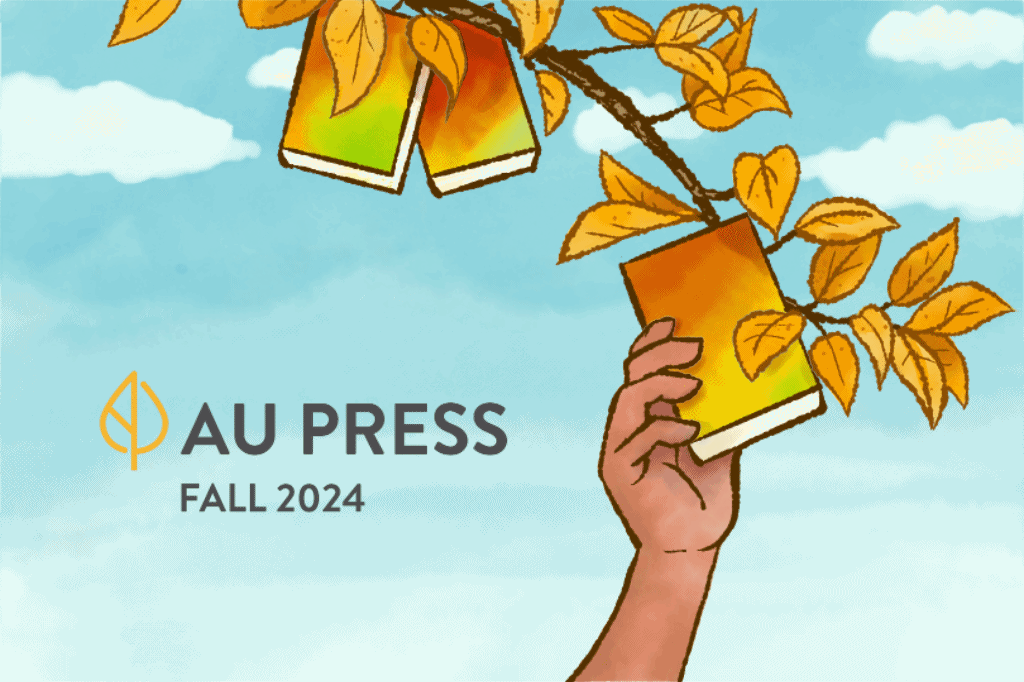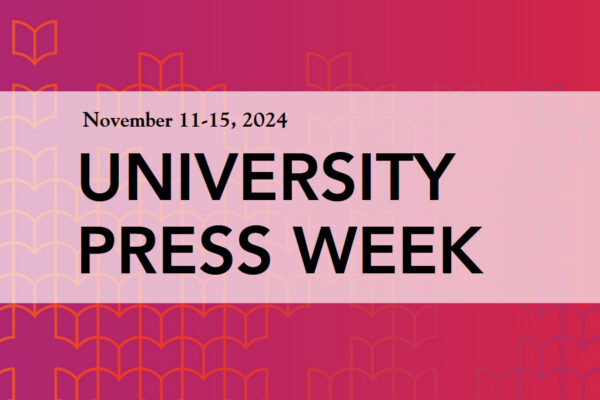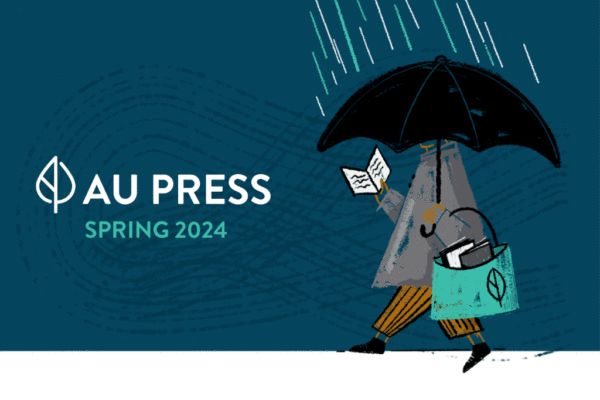We are excited to announce a catalogue of unique books coming to AU Press this fall covering a wide range of subjects. Fall 2024 will see new entries in our Issues in Distance Education and Open Paths to Enriched Learning series, an essay by former AU Writer in Residence Myrna Kostash, and a fully-illustrated ethnobotanical guidebook of the Skeena River region in the Pacific Northwest! As always, AU Press looks forward to publishing these outstanding titles in a variety of accessible and open access formats, both in print and online.
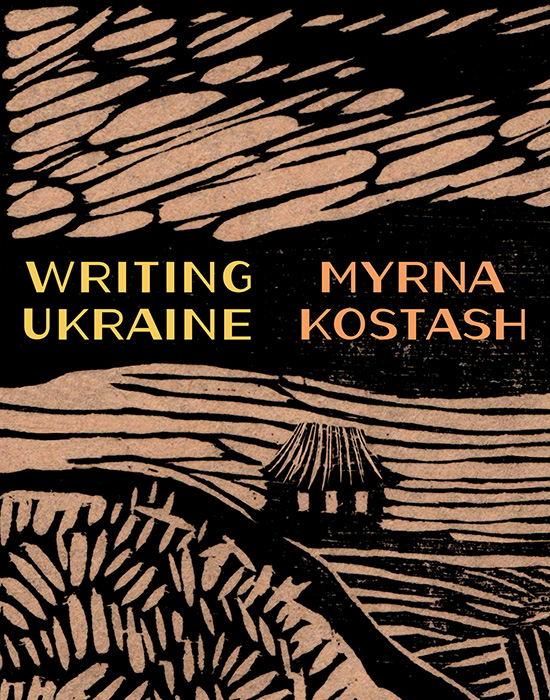
Writing Ukraine | August 2024
Myrna Kostash
Myrna Kostash’s term as writer in residence at Athabasca University began shortly after the escalation of the Russo-Ukrainian War in 2022. In this essay, based on her writer-in-residence lecture at Athabasca University, Kostash offers a self-critical reflection on her past writing and considers how her visits to Ukraine and the ongoing war have nuanced her writing about and understanding of Ukrainian Canadian identity.
Born and raised in Edmonton, Myrna Kostash arrived on the literary scene in 1977 with the publication of the now classic All of Baba’s Children. She is the author, among many other titles, of Bloodlines: A Journey into Eastern Europe (1993), which won the Alberta Culture and Writers’ Guild of Alberta prize for Best Non-Fiction, The Doomed Bridegroom: A Memoir (1998), and Prodigal Daughter: A Journey to Byzantium (2010), which received the 2011 City of Edmonton Book Prize and the 2011 Writers’ Guild of Alberta Wilfred Eggleston Award for Best Nonfiction. Her most recent publication, Ghosts in a Photograph: A Chronicle, was honoured with the Shevchenko Foundation’s 2024 Kobzar Book Award. Kostash, who has served as president of the Writers’ Guild of Alberta and as chair of the Writers’ Union of Canada, has lectured all across Canada and in Europe on a wide array of contemporary topics. In 2010, she was awarded the Writers’ Trust of Canada’s Matt Cohen Award: In Celebration of a Writing Life.
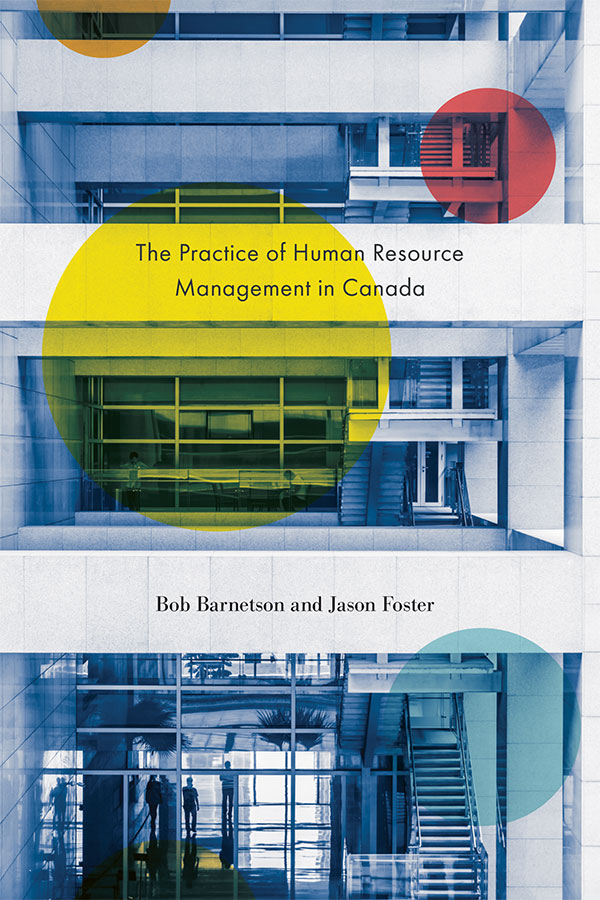
Newly announced in the Open Paths to Enriched Learning series
The Practice of Human Resource Management in Canada | August 2024
Bob Barnetson and Jason Foster
This introductory human resource management (HRM) textbook provides students with an overview of the major domains of human resource management (the “how-to”) with a focus on the practical application of the most recent HRM research and best practices. Students will learn to understand, anticipate, and respond to how power, profit, and intersectionality shape the practice of HRM. Moving beyond the typical procedure-oriented textbook, Barnetson and Foster provide thought-provoking political analysis to better prepare students for the real-world practice of human resource management.
Bob Barnetson is a professor of labour relations at Athabasca University. His previous books include Health and Safety in Canadian Workplaces (with Jason Foster), the Political Economy of Workplace Injury in Canada, and the Canadian Labour Market Training System. Jason Foster is associate professor of human resources and labour relations at Athabasca University. He is also Director of Parkland Institute, a public interest research centre based at the University of Alberta. He is the author of Health and Safety in Canadian Workplaces (with Bob Barnetson) and Defying Expectations: The Case of UFCW Local 401. His most recent book is Gigs, Hustles and Temps about precarious work in Canada.

Silm Da̱’a̱xk / To Revive and Heal Again: Historical Ecology and Ethnobotany in La̱xyuubm Gitselasu | October 2024
Chelsey Geralda Armstrong in collaboration with Gitselasu Knowledge Holders
The history and ecology of the Skeena River region in the Pacific Northwest is characterized by a complex landscape of interwoven phenomena, driven by biophysical and cultural changes over millennia. Combining archaeological, botanical, and historical research, together with first-hand accounts provided by Gitselasu knowledge holders, this book critically assesses and debunks settler colonial narratives of a wild and untouched landscape in northwestern British Columbia. By focusing on people-plant interactions and landscape changes through time, Silm Da̱’a̱xk offers insights into the diverse and bustling territories of Gitselasu Ts’msyen. Augmenting these discussions is a vividly illustrated guide to the plants that grow in the region.
From the middle Skeena River to the coast, along creek beds and into alpine meadows, Gitselasu continue to thrive, representing one of the oldest and longest enduring Ts’msyen Nations. Tapping into historical knowledge of the laws (adawx) surrounding plant use and territory ownership, this book highlights the intricate relationships that exist among people, places, and plants.
Chelsey Geralda Armstrong is a historical ecologist and archaeologist based in La̱xyuubm Gitselasu. She is assistant professor at Simon Fraser University in Indigenous Studies and associate member in the School of Resource and Environmental Management. She is widely published in international scientific journals and is associate editor of People and Nature. Gitselasu Knowledge Holders include the many teachers and Elders who contributed to this book, including Wilfred Bennett, Amy Bevan, Mel Bevan, Geneva Mason, Alfie McDames, Isabelle McKee, CJ Nabess, Pat Squires, and countless others. This collaboration was guided by the Kitselas Lands and Resource Department, stewards of Gitselasu lands and waters.
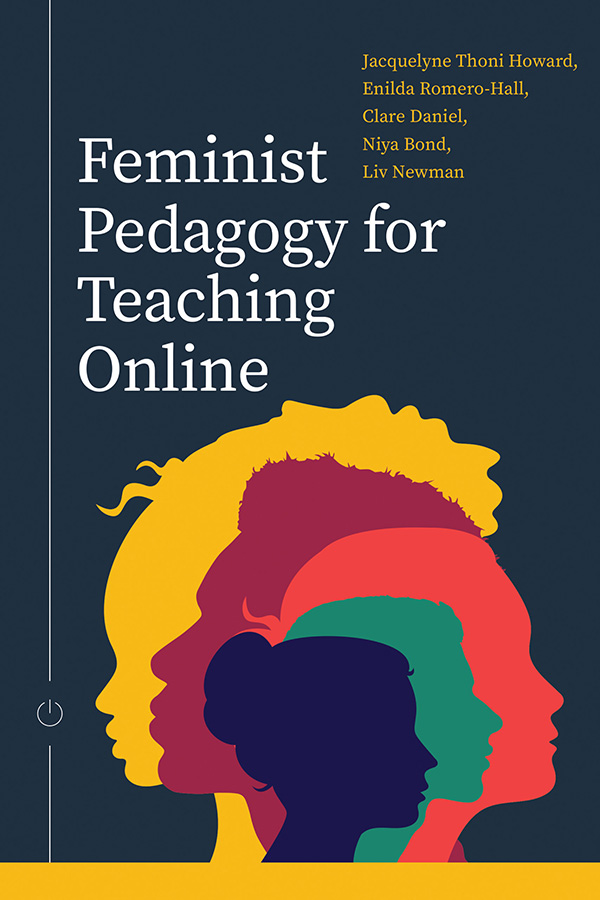
Newly announced in the Issues in Distance Eduction series
Feminist Pedagogy for Teaching Online | November 2024
Edited by Jacquelyne Thoni Howard, Enilda Romero-Hall, Clare Daniel, Niya Bond, and Liv Newman
Instructors across higher education require inspiring and practical resources for creating, adapting to, and enhancing, online teaching and learning spaces. Faculty need to build collaborative, equitable and trusting online learning communities. This edited volume examines the experiences that interdisciplinary and global feminist educators have had—both their successes and their challenges—in infusing feminist pedagogical tenets into their online teaching and learning practices. Contributors consider how to promote connection, reflexivity, and embodiment; build equity, cooperation, and co-education; and create cultures of care in the online classroom. They also interrogate knowledge production, social inequality, and power. By (re)imagining feminist pedagogy as a much-needed tool and providing practical advice for using digital technology to enact these tenets in the classroom, this collection will empower educators and learners alike.
Jacquelyne Thoni Howard is a professor of Practice of Data at the Connolly Alexander Institute for Data Science at Tulane University. She is a founding co-editor of the nationally recognized guide, Feminist Pedagogy for Teaching Online, and has published journal articles and chapters about social and cultural topics relating to the History of Science and Technology Studies and Digital Humanities Labs. Enilda Romero-Hall is associate professor in the Learning, Design, and Technology program at The University of Tennessee Knoxville. She is the author of the edited volume Research Methods in Learning Design and Technology. Clare Daniel is a Senior Professor of Practice and Director of Research at Newcomb Institute of Tulane University, where she teaches in the Department of Communication. She is the author of Mediating Morality: The Politics of Teen Pregnancy in the Post-Welfare Era. Her work has also appeared in Signs: Journal of Women in Culture and Society, Frontiers: A Journal of Women Studies, Feminist Media Studies, and elsewhere. She is a founding editor of the Feminist Pedagogy for Teaching Online digital guide. Niya Bond is an online educator, faculty development facilitator, and PhD candidate at the University of Maine studying online teaching and learning. Her publications focus on empowering online learners and educators, creating and sustaining virtual communities of practice (both formal and informal), and facilitating equitable, belonging, and inclusive educational experiences. Liv Newman is administrative assistant professor and Associate Director of the Center for Engaged Learning and Teaching at Tulane University. She has worked in higher education for nearly 25 years spanning both teaching and administrative roles. Her scholarly interests focus on the intersection of race and class, inequities in education, and enhancing the online educational experience for faculty and students.
With contributions by Nadia Awaida, Maha Bali, Karen Samantha Barton, Aras Bozkurt, Amy M. Collier, Rebecca Cottrell, Rujuta Date, Kathryn E. Frazier, Staci Gilpin, Ashley Glassburn, Letizia Guglielmo, Nandita Gurjar, Priya Gurjar, Nadia V. Jaramillo Cherrez, Bridget A. Kriner, Jo Krishnakumar, Steven James Mockler, Jana Lo Bello Miller, Sarah Lohnes Watulak, Ann Obermann, Sarah Payne, Chloe Raub, Xinyue Ren, Dana Rognlie, Stephanie Rollag Yoon, Saanchi Saxena, Catharyn C. Shelton, Elizabeth A. Siler, and Sukaina Walji.
AU Press acknowledges the financial support of the Government of Canada through the Canada Book Fund; the Canadian Federation for the Humanities and the Social Sciences through the Awards to Scholarly Publications Program; and the Government of Alberta through the Alberta Media Fund.



